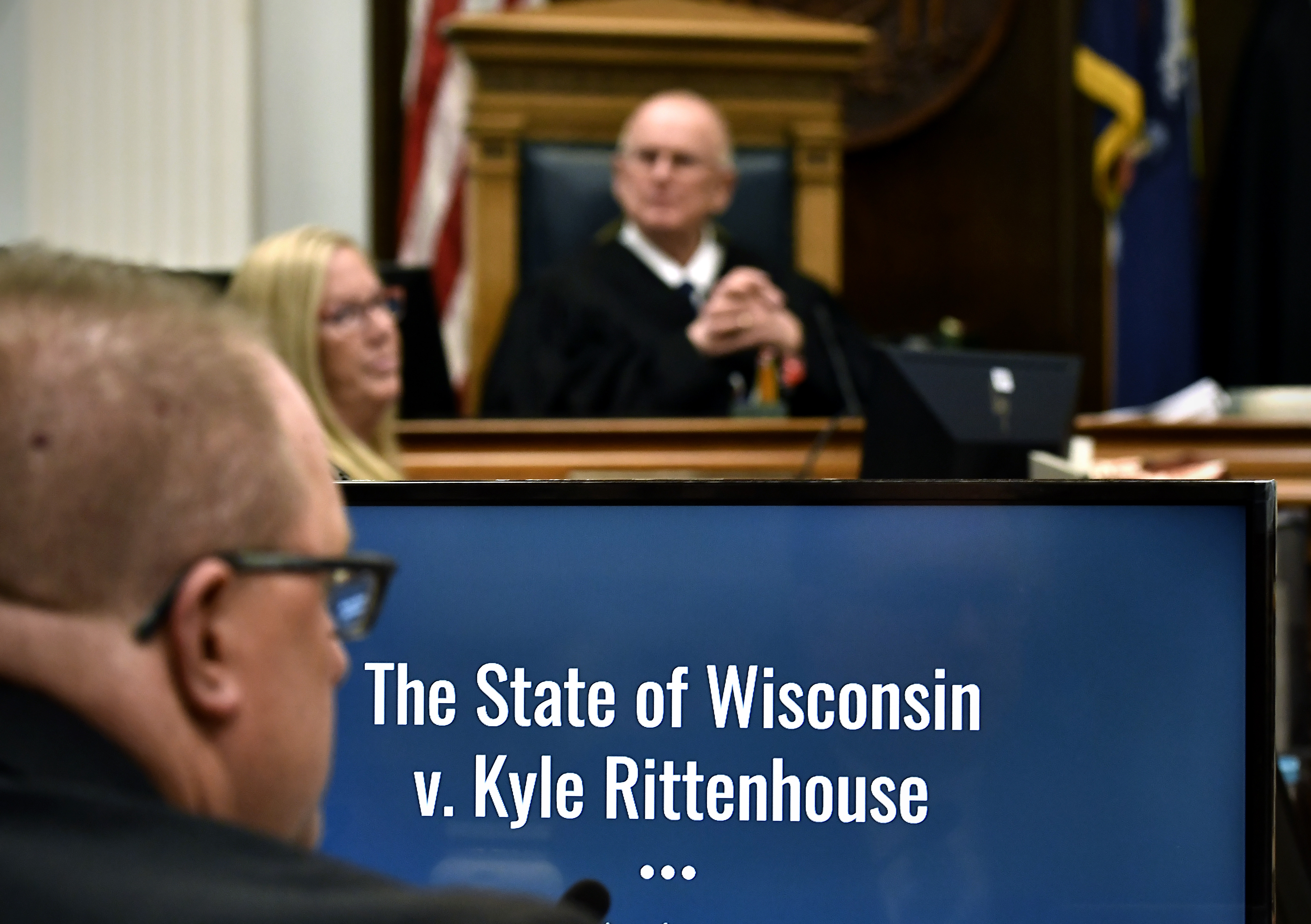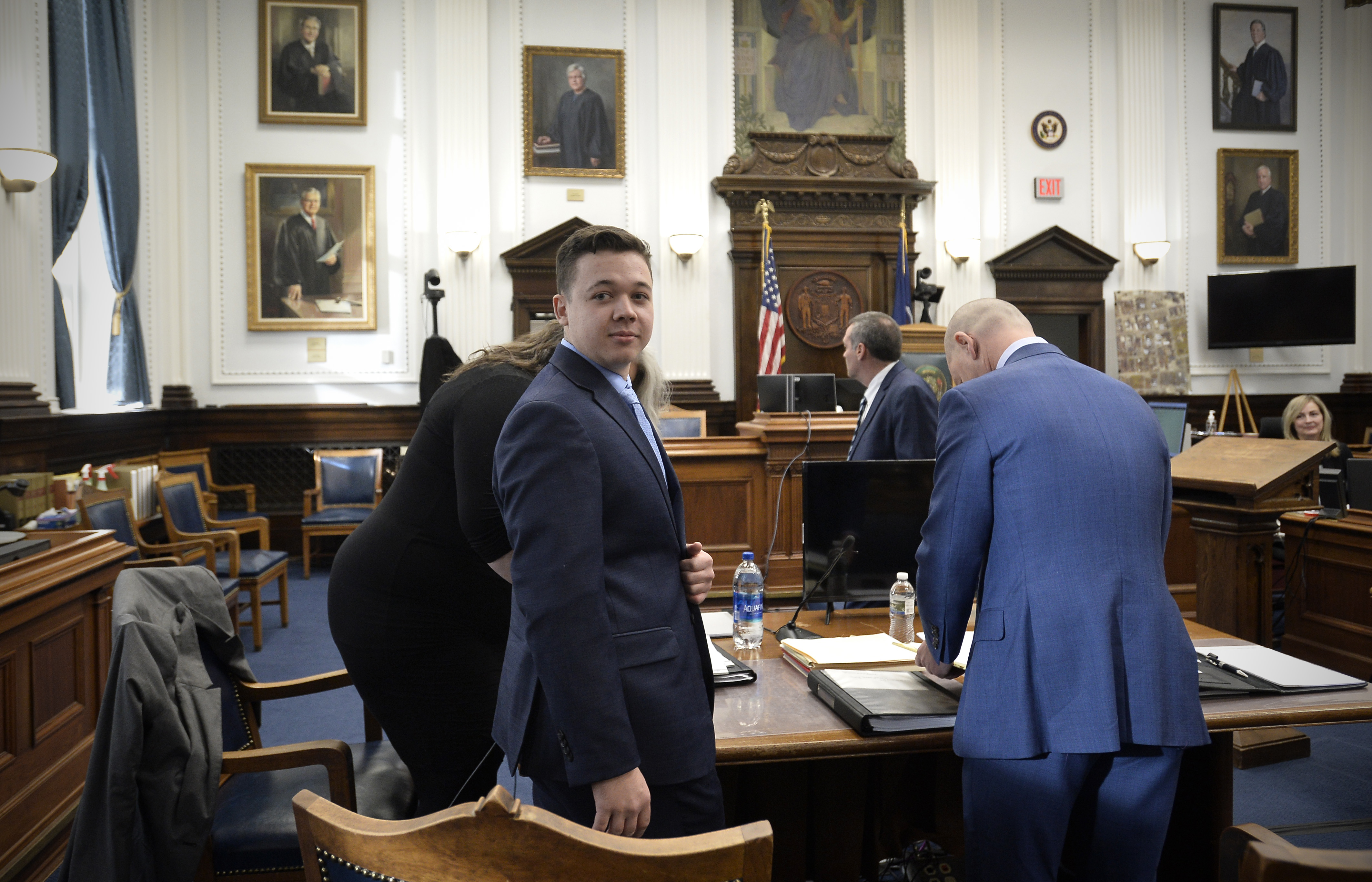LIVE COVERAGE: A live feed of Kyle Rittenhouse's murder trial is available here when court is in session.
The judge in Kyle Rittenhouse’s murder trial, already the subject of scrutiny for various actions in the case, drew attention again on Monday for his handling of jury instructions.
Judge Bruce Schroeder, who had been expected to file final instructions on Sunday, took arguments from attorneys until the last minute Monday as he edited the instructions on the bench. Then he sent the jury out midway through to talk with attorneys about making them clearer.
The last-minute activity focused on a crucial procedure — developing instructions about how jurors should determine whether Rittenhouse is guilty of each charge against him. On Monday, just hours before jurors got the case, Schroeder dismissed a charge of being a minor in possession of a firearm.
Instructions are always closely scrutinized by attorneys and judges. In a case complicated by multiple charges, victims and Rittenhouse's self-defense claim, the document's importance is clear.
Schroeder, Rittenhouse's attorneys and prosecutors spent all day Friday discussing the directions, continued written communication over the weekend and still had protests and worries to hash out Monday morning before the 36 pages were ready for Schroeder to read aloud to jurors.
At one point, Schroeder bemoaned the dense instructions: “I just, I feel terrible about giving this kind of stuff,” he said outside the jurors’ presence.
Prosecutors repeatedly asked Schroeder not to veer far from the model instructions and disagreed with the judge’s preferred wording for some procedures. At one point, prosecutor Thomas Binger told Schroeder: “That’s not the law.”
Legal experts have for decades debated how to make instructions more understandable to jurors, unfamiliar with the archaic and confusing terms in statutes and criminal codes. In Wisconsin, a committee of judges creates model jury instructions which attorneys and individual trial judges can use as-is or adapt for specific cases.
Feeling out of the loop? We'll catch you up on the Chicago news you need to know. Sign up for the weekly Chicago Catch-Up newsletter.
As with most courtroom proceedings, those are a trial judge's decision, said Sara Gordon, a professor of law at the University of Nevada-Las Vegas, who has studied juries.
Gordon said she would almost always advocate for more explanation to jurors because it's likely the last opportunity to explain the law, barring juror questions as they deliberate.
“The trial itself is about giving all the facts to the jury through testimony and evidence,” she said. “In the deliberation room, the jury has to apply the law to all those facts. And that's difficult to do."
About 30 minutes into his reading of the instructions to jurors, Schroeder began explaining in his own words how jurors should discuss primary charges and lesser charges, then fell silent.
“I've got myself into a mid-sentence, and I don't like it,” he said. Then he turned off his microphone and called attorneys to the front of the courtroom.
“I've worked with the instructions all weekend and we discussed them by email and then I'm reading them and little things are striking me as I read them,” he said after jurors left the room.
Phyllis Kotey, a clinical professor at Florida International University's College of Law and a retired judge, said carefully scrutinizing and revising jury instructions and even stopping mid-instruction to correct a potential error are wise steps to try and give jurors a clear understanding of the law.
Kotey declined to comment specifically on Schroeder's approach, saying judicial ethics prevent her from commenting on a pending case or another judge.
Judges often begin reading instructions aloud and spot typos or errors, she said.
“You don't want to just change it without having another side weigh in,” she said. “That again becomes a basis for appeal. The best thing to do then is to stop and talk it out.”
Kotey said adding explanation beyond a court's model or pattern instructions can be a risk.
“There are standard instructions for a reason, and jury instructions can be the basis for an appeal if they're not proper," she said.
The longtime judge's legal decisions and quirky mannerisms have been closely scrutinized during Rittenhouse's trial.
Schroeder entertained potential jurors with trivia during jury selection and shouted at the lead prosecutor when felt his cross-examination of Rittenhouse crossed legal boundaries. Some legal observers faulted the judge for leading a round of applause on Veterans Day despite knowing a defense witness was the only self-identified veteran in the room.
He has repeatedly joked about his lack of technical expertise and drew more attention last week when sending jurors to lunch remarked that he hoped “the Asian food isn’t coming, it isn’t on one of those boats in Long Beach Harbor.” Observers seized on the remark, an apparent reference to a cargo ship backlog seen on the West Coast, as questionable at best and racist at worst.
Schroeder has seemed to be aware of the scrutiny. He quipped Monday about wishing fewer people had his email address. And in discussing the day’s schedule with attorneys, he said:
“And I’m not going to comment on lunch."



